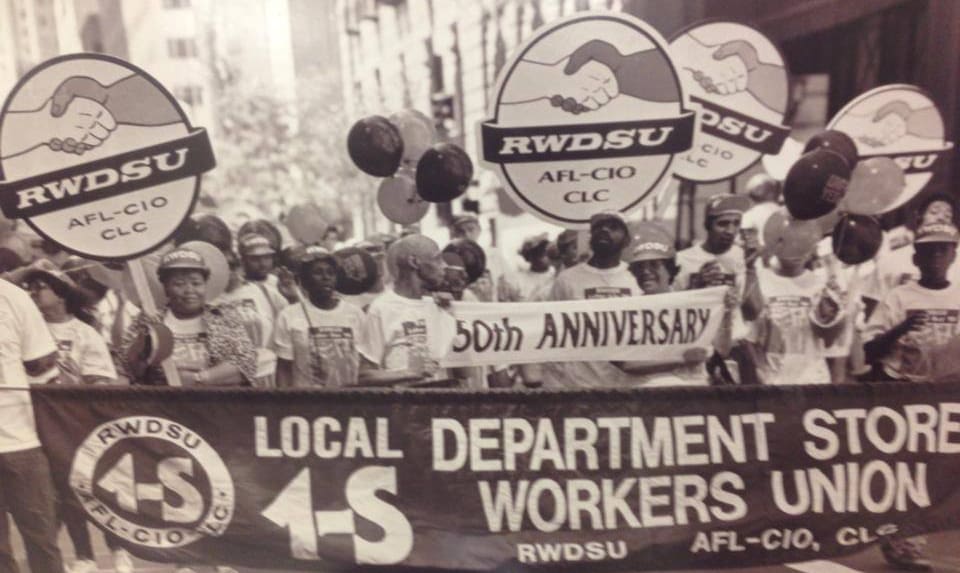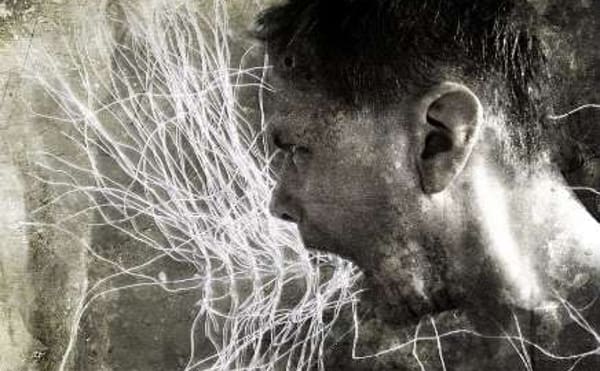Transcribed from the 27 February 2016 episode of This is Hell! Radio (Chicago) and printed with permission. Edited for space and readability. Listen to the whole interview:
What we’re experiencing now in our culture is overwhelmingly an emotional social actor, and it would really behoove us to understand the extent to which this is happening.
Chuck Mertz: Wasn’t the Age of Reason awesome? Remember how we would actually make decisions based on logic? Oh, you don’t? Oh. Well, anyway, that used to happen a while ago. But it doesn’t happen so much anymore. Now we’ve moved on to the Age of Affect, an age of feelings guiding our choices and preferences in every aspect of our culture.
Here to describe this new age of feeling, educator Dierdre Reber is the author of Coming to Our Senses: Affect and an Order of Things for Global Culture. Dierdre is assistant professor of Spanish at Emory University. Her essays on the cultural politics of Latin American film and fiction and the epistemology of global culture have appeared in many publications.
We were just talking to Bhaskar Sunkara and Sarah Leonard about their new book; they talk about millenials, what their future is looking like, what they want in a society and what their choices are. You write that in your childhood, you had the “persistent impression of having been born into a cultural aftermath. Everything had already appeared and I had missed it all. Wars of indiscernible quantity; presidents and cultural heroes assassinated; the civil rights movement, Woodstock, Vietnam.”
And you discuss a certain Coca-Cola ad as a cultural touchstone for you, one with “people singing in candlelit unity about buying the world a Coke. The ‘candles’ ad is my earliest memory of the cultural instantiation of what I propose to call a feeling soma: a model of human knowledge and action based on the conceptual framework of a body governed by moral standards; a morality defined on an emotional spectrum—positive is good, negative is bad.
“I offer the model of the feeling soma as a means of explaining profound newness, the shifting of epistemological terrain in which the casting of knowledge of self and world becomes a process of coming to our senses. That is, a coming into reason by way of the non-rational, in which feelings and togetherness become the new basis of forming knowledge and political action aligned with fundamentally horizontal, democratic moral principles of equality and well being.”
When I mentioned to a friend of mine that you would be on the show today, they reminded me of how back in 2000 a coworker of theirs told them that he was voting for George W. Bush “because he was the kind of person you could have a beer with.” Recently I was talking to a family member who said that they didn’t like Hillary Clinton until they read a profile of her that explained what she had gone through in her life, especially at a young age, and how now she didn’t feel bad about voting for Hillary.
Are our political choices based on feelings more now than in the past? Hasn’t the feeling soma always, to a certain extent, guided our choices?
Dierdre Reber: Of course. What I’ve tried to study is not so much a physiological process as it is a cultural process. What I’ve tried to get at is the role and the power of emotion in culture, rather than a debate about our physiology and whether emotion or reason is more powerful.
What is the role of feeling and emotion in the political process? I take one of my cues in that domain from an Emory colleague, Drew Weston, who writes about the political brain and the electoral process as being profoundly emotional, in a way that I find really challenges the idea of the rational social actor. I think what we’re experiencing now in our culture is overwhelmingly an emotional social actor, and it would really behoove us to understand the extent to which this is happening.
You talk about the difference in generations: I teach millenials, and I try to wrap my mind around what it must be like to have been born into the nineties. I feel like I have a huge benefit of perspective from being born in what has always felt to me like a transitional moment, where I glimpsed a fleeting before as we entered into this new after that is just a perpetual now.
And what called to me insistently over and over again as I started this project was just that “beer test,” the “likability factor” of presidents. When I was younger I didn’t think that was why we elected presidents. I thought we elected them because of their sound judgment and skill sets and knowledge of domestic and international affairs, and not because they have love-fests with their supporters or because they have incredible emotional crowd control and are able to whip people up into frenzies, both positive and negative.
These are the types of things that I see and that I have tried to find a framework to understand in a scholarly way.
CM: You mention what you call the “egalitarian images” shown in those Coca-Cola ads: you talk about how there is no leader—even when the candle-holding singers form a triangle, the single person at the tip of the triangle is not the focus of the ad. I immediately thought of “leaderless” movements like Critical Mass, and Occupy.
How much does that feeling soma guide younger people today, more than older citizens? Or is everyone guided by the same set of feelings?
DR: I realize that it is a huge proposition to make, but that is, in fact, my feeling. I recently read an interview online, with a young manager who was in his twenties. He was talking about the millenial style of business management and how it’s “leading by not leading.” It’s leading by helping team members—who we would have once thought of as subordinates—to realize their full potential. It’s helping the group to succeed; it’s facilitating, it’s enabling, rather than dictating, or talking down to, or imposing goals. It’s really trying to lead in a grassroots sort of way. That’s the mentality.
I don’t want to come across as saying that this is some kind of idyllic world and things always work this way. I don’t at all. What I’m trying to get at is that there’s a certain mindset of guiding principles—or guiding imagery, if you will, a cultural imaginary—that we all buy into, that we’re all on board with, and it’s particularly strong in millenials who were born directly into this moment in history that really became salient after the fall of the Soviet Union and the so-called “universal triumph” of liberal democracy and free market capitalism.
CM: How ironic is it that this message which had such a profound impact on you is created for the sales of a product that is attached to so many issues (obesity and other health problems, water rights, environmentalism)? How ironic is it that it comes from a corporation structured with a top-down hierarchy?
DR: Exactly! It is one hundred percent ironic. What I’ve tried to get at is that especially within academic and scholarly circles we think of capitalism as this rational, cold, calculating, imperialist machine. But if we go back and look at the ideologues at the birth of free market capitalism, they see themselves as revolutionaries. They see themselves as opposed to that litany of inhumanity that I just listed. They see themselves as opposed to monarchy, opposed to rule by fiat, opposed to dictatorial rationality.
So one of the moments when all of the pieces of this puzzle that I was trying to put together came into view was when I made a visual, conceptual comparison: if we think of the classic, iconic frontispiece of Hobbes’ Leviathan with the king rising up, with a crown, sword, and scepter, towering over the people and the land, that’s the image of empire that I want to work with, where the body is subject, residual, and abject with respect to the ruling head that is always rational. The body is beset with passions that are lowly and even animalistic.
In the time of the Age of Revolution, that body represented the bourgeoisie, the same bourgeoisie that we now vilify as part of the same imperial complex. It was once part of that residual category of the lowly and the passionate. Theirs was the economic power that enabled revolution on a global scale, but they were part of what in France was referred to as the Third Estate. They weren’t nobility. They weren’t royalty. They weren’t clergy. So in order to justify this change in government and power and model of governance, there has to be a discourse, a narrative of legitimation.
So that body, full of passion, says that emotions are universal; emotions are what grant us the power to self-govern. And not just emotions, but emotions plus capital; morality and capital flow through this body. So they lop off the governing head, and they assert that, when left to its own devices, this body knows exactly what to do. It’s a kind of homeostatic model of self-governance.
If we think of Adam Smith’s famous Invisible Hand from The Wealth of Nations, this force that is able to move capital through the body politic without intervention: that’s the whole concept behind laissez-faire. Leave it alone. Don’t intervene. No regulations. Does that sound familiar? But in its origins, it was revolutionary, and it was idealistic.
I think we need to keep that in mind, though is it is jarring to anybody who analyzes capitalism in its practical functionality now.
We have to stop having a dismissive attitude about emotion, because it’s a powerful discourse. It’s not something to be discarded or overlooked; it is at the center. It’s moving our national discourse.
CM: So are the current conditions of neoliberalism the inevitable outcome of free market capitalism? Is this what its goal always was, to lop off the head, and have headless capitalism?
DR: That’s what many scholars say, yes. There are contradictory discourses. On the one hand there is the discourse of egalitarian, positively-affected, harmonious flow which produces well-being. Back at the origins, the ideas of utilitarianism, of maximizing the happiness of individuals and society was paramount in the zeitgeist. What I want to underscore is that there is a premium on this concept of “well-being.” Everybody is fighting to control that idea. So we will see Coca-Cola saying that happiness is in a bottle, and then we’ll see their detractors saying, no, you’re killing the world with your awful product; well-being is in drinking something entirely natural.
Whether it is inevitable that capitalism takes this discourse that then acts in a way that we might call more neo-imperialist—I don’t know. It seems like that’s an eternal debate, within economics as well as virtually every other discipline in the public-cultural sphere. At one point several years ago, in the midst of the very moment when Goldman Sachs was being investigated for fraud, the CEO of Goldman Sachs claimed that Goldman Sachs is doing God’s work on Earth. So there are incredibly different perspectives on the cultural present that we’re occupying.
CM: You write about “a singular but diverse we whose public action derives from what we might consider a kind of emotionally-derived sense of social justice. This is to be found in the Occupy movements that have sprung up across the globe since the original phenomenon of coordinated mass public protests in Spain by the so-called Indignados, the Outraged, whose emotionally plaintive rubric denotes a decidedly political stance, signals a rejection of the asymmetrical political economics of neoliberalism.
“This posture is echoed by the thousands of protests that have since taken place worldwide in inspired emulation of the Indignados, which consistently interweave the idea of love and positive emotion with a political platform of a perfectly democratic horizontality in which there is a full rejection of hierarchy in either the political or economic sphere.”
And you mention documentaries about Occupy, like Love is the Revolution, the title of which “proposes love as the mechanism for social change, and implicitly for an alternative and revolutionary social order, how the collective ‘living love’ as a kind of communal and emotional habit. ‘Living together in love’ is thus foregrounded as the conceptual synthesis of the Occupy movements the world over.”
What do we miss, then, when we only see emotional dimensions (fear, for example) on the right, and don’t see the emotional dimensions on the left?
DR: Well, there’s a whole sector that waxes nostalgic for a more properly Cartesian, rational political subject. Coming from this sector—from people as diverse as Al Gore and Slavoj Žižek—there has been this plea that the left needs reason, cannot abandon it. It’s an older crowd, in terms of a generationally marked perspective.
But emotion as the fabric of our cultural thought, of our political action, goes across the board. It’s absolutely not just on the right. It’s also on the left. It’s a common language.
Now, where it originates from is a different matter. My argument is that capitalism itself gives us this discourse. This has been a contentious, even controversial part of my argument within academic circles, where affect and emotion has been embraced by an activist leftist sector, especially in the humanities, as a counter-discourse to the now demonized Cartesian subject of old, associated with empire, associated with the subjugation and oppression of peoples worldwide. The argument goes that the Cartesian subject was dealt a death blow with decolonization, and now we’ve entered this new era where a non-rational type of subjectivity has had a triumphalist entry into the cultural fore.
But I think it’s a mistake to see it as only triumphalist. I don’t seek to characterize it either way. I seek to explain its genesis and to say this is the type of language that we use to make sense of ourselves and to make sense of the world—whether you’re on the right or on the left—and we have to stop having a dismissive attitude about emotion, because it’s a powerful discourse. It’s not something to be discarded or overlooked; it is at the center. It’s moving our national discourse.
CM: So do you see feeling and affect changing the narrative in journalism as well?
DR: There is something that I’ve been thinking about with particular intensity in the past week or so, a comparison that has been emerging in my mind at an intersection between journalism and the law and public opinion. When we think about the development of the Black Lives Matter movement, especially over the past year or two, we see this pattern of white male police officers defending themselves on charges of shooting young black males on the grounds that they were afraid. And this emotionally-based defense has really resonated. Of course it’s created a backlash of fury and rage from within the black community, because it feels to them (feeling being the operative word) entirely indefensible.
So we have that on one hand, and on the other hand I was really interested by this case at the University of Missouri, of the white female assistant professor of communications, Melissa Click, who was just fired by the university for her participation in a black student protest in a way that was characterized as being overly aggressive. She was even charged with a misdemeanor, third degree assault, for trying to block a student journalist who wanted to get into the private camp area of the predominantly black student demonstrators.
What I find interesting about the reporting of professor Click’s case is that only her acts of aggression, and the visual evidence of that aggression—there are a couple of still shots from a video that was taken of her, with a very angry face—are the staple points of every journalistic account that I’ve read, from all different media sources. There’s very little discussion of the circumstances that underlie or that gave rise to this situation.
And the Chronicle of Higher Education published a whole list of emails—she was flooded with emails, a thousand-plus emails, many of which were hate emails. But one of them was a supportive email that said, “Please defend yourself in the public eye. Please explain why you were so angry that day.”
That really caught my attention, because nowhere else did I see that emotional discussion. In that sense, there was a refusal of what we might consider “emotional due process.” There was no discussion in public about her anger and indignation.
I’m not saying that what she did or didn’t do is justified or not; I’m talking about the framework within which it is discussed in the public eye, and the contrast between the emotional due process that is given to white male police officers on the grounds of their fear, but that was withheld here on the other side. I find that to be a really striking and even dissonant difference.
CM: Dierdre, I truly appreciate your being on our show this week. Thank you so much, and take care.
DR: Thank you so much, I’m honored to have been invited.





